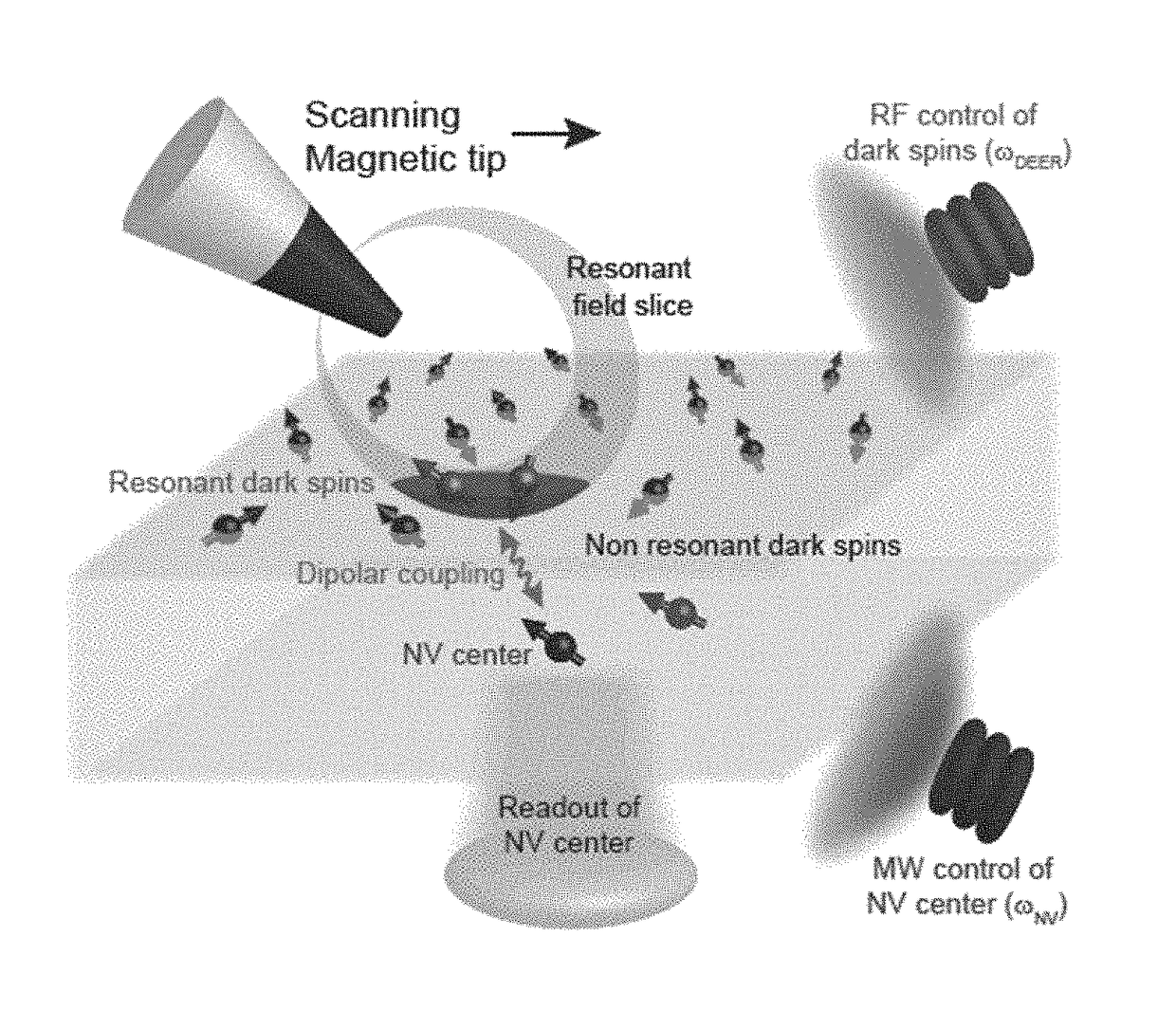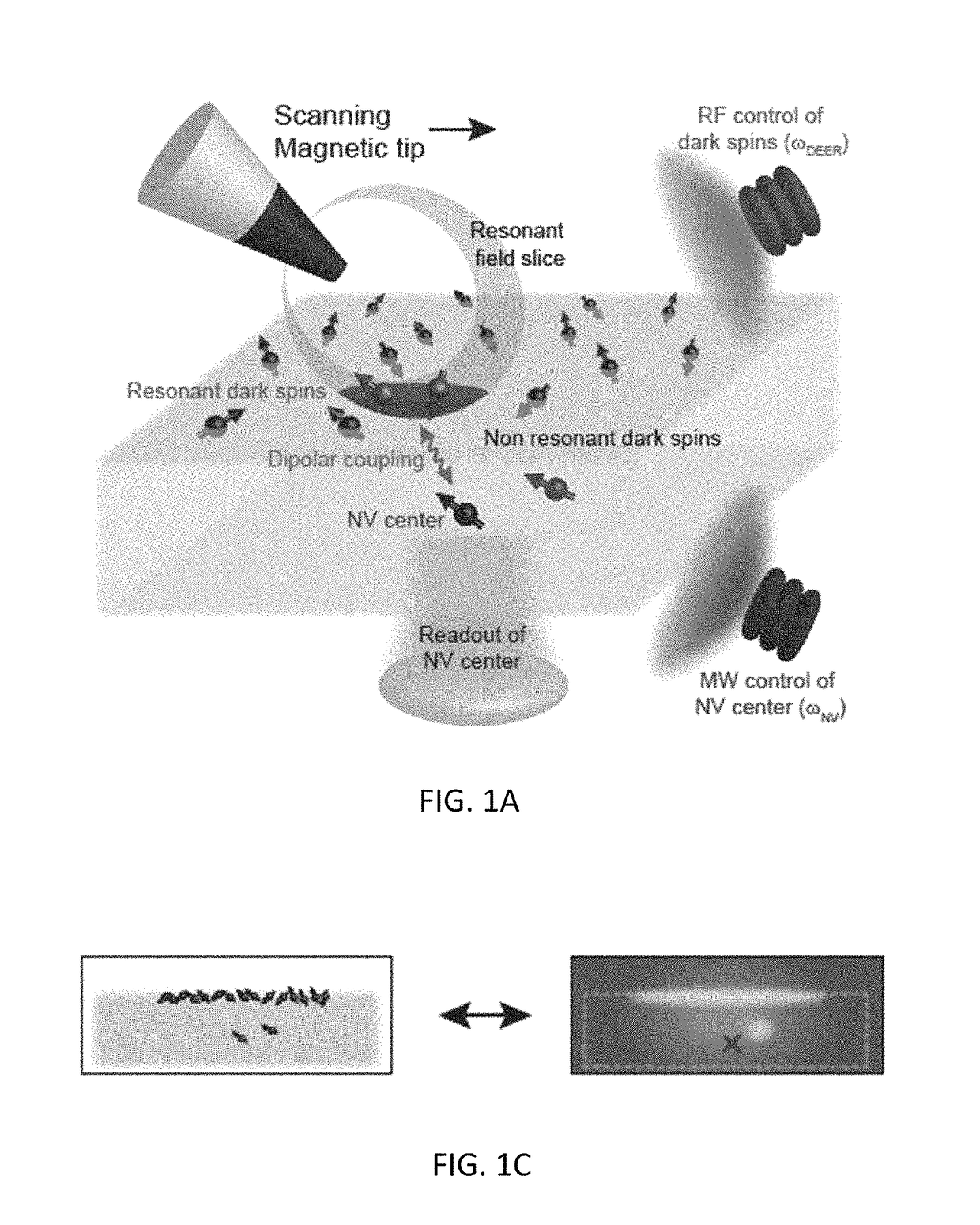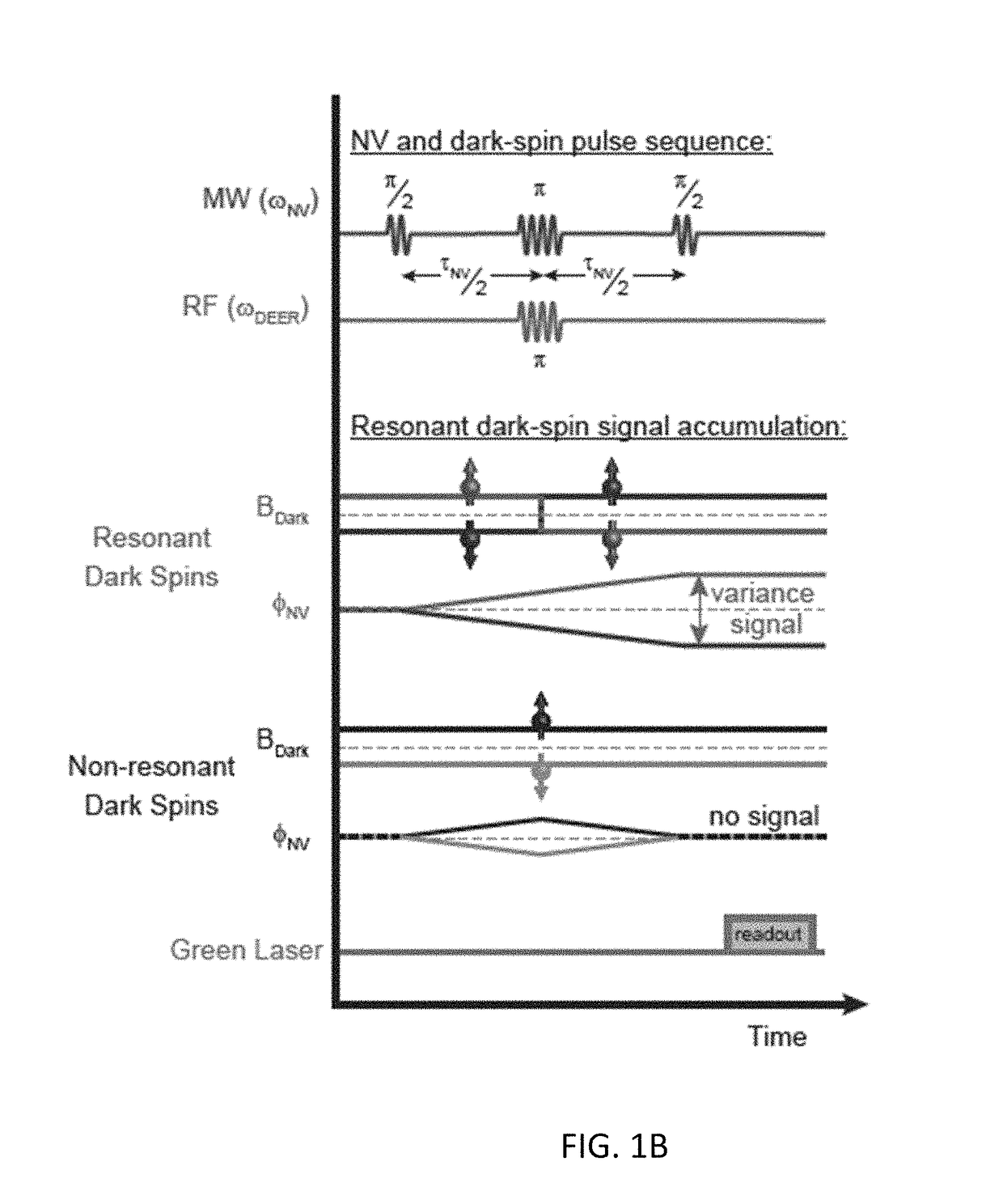Method and system for magnetic resonance imaging using nitrogen-vacancy centers
a magnetic resonance imaging and nitrogen-vacancy center technology, applied in the field of magnetic resonance imaging, can solve the problems of insufficient imaging on molecular and atomic scales, limited spatial resolution of conventional mri systems, and inability to perform conventional mri on sub-micron length scales, etc., to achieve the effect of improving magnetic imaging
- Summary
- Abstract
- Description
- Claims
- Application Information
AI Technical Summary
Benefits of technology
Problems solved by technology
Method used
Image
Examples
Embodiment Construction
[0025]The method and system of the present invention combine an NV magnetometer with scanning magnetic-field gradients using an atomic-force microscope. An exemplary NV magnetometer is described in U.S. Pat. No. 8,547,090, entitled “Electron Sin Based Enhancement of Magnetometer Sensitivity.” In a preferred embodiment of the present invention, individual shallowly implanted NV centers (nominal depth of 10 nm) are placed in the focus of a confocal microscope so that the NV electronic spin can be initialized by optical pumping, used as a sensor to measure nearby dark spins, and read out using time-dependent fluorescence. See, A. Gruber, et al., “Scanning Confocal Optical Microscopy and Magnetic Resonance on Single Defect Centers,” Science 276, 2012 (1997). To image the 3D distribution of dark spins via NV-MRI, a local magnetic-field gradient is applied with a scanning magnetic tip. The magnetic tip provides a narrow spatial volume (a ‘resonant slice’) in which dark spins are on resona...
PUM
 Login to View More
Login to View More Abstract
Description
Claims
Application Information
 Login to View More
Login to View More - R&D
- Intellectual Property
- Life Sciences
- Materials
- Tech Scout
- Unparalleled Data Quality
- Higher Quality Content
- 60% Fewer Hallucinations
Browse by: Latest US Patents, China's latest patents, Technical Efficacy Thesaurus, Application Domain, Technology Topic, Popular Technical Reports.
© 2025 PatSnap. All rights reserved.Legal|Privacy policy|Modern Slavery Act Transparency Statement|Sitemap|About US| Contact US: help@patsnap.com



